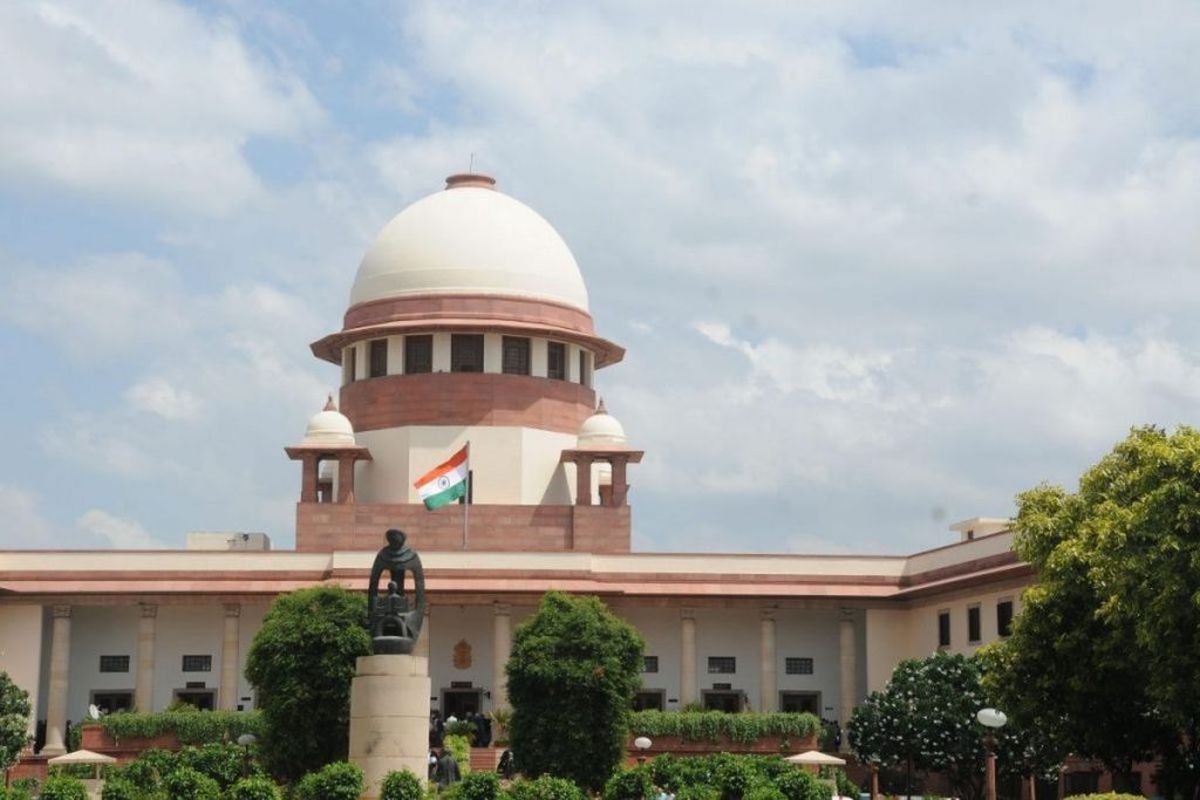So finally in the case of the Manipur Legislature, the Supreme Court has been compelled on March 18, to use its Brahamastra i.e powers vested in it by virtue of Article 142 of the Constitution to do complete justice. According to the provisions of the Article, the Supreme Court in the exercise of its jurisdiction may pass such decree or make such orders as is necessary for doing complete justice in any matter before it.
It has been observed by the Supreme Court itself that the power to do complete justice is entirely of a different level and quality, which cannot be limited or restricted by the provisions of the statutory law. It has also observed that it would be advisable to leave this power undefined and uncatalogued so that it remained elastic enough to be moulded to suit the given situation.
Advertisement
Further, powers have been conferred for due and proper administration of justice and whenever the court sees that the demand of justice warrants exercise of such powers, it will reach out to ensure that justice is done by resorting to this extraordinary provision introduced in the Constitution to meet demands of just such a situation. The genesis of the Supreme Court being vested with such a power can be found from within Article 210 from the Government of India Act ,1935.
The Constituent Assembly during its debates modified it as “The Supreme Court in the exercise of its jurisdiction may pass such decree or make such order as is necessary for doing complete justice in any cause or matter pending before it ——”. It is this draft which was finally adopted as Article 142. This was passed by the Constituent Assembly, as it is, except that during the stage of revision, the words “and until provision in that behalf is so made in such manner as the President may by order prescribe”, were added. Broadly, the Supreme Court has acted under Article 142, in such matters, where there is some manifest illegality or where some palpable injustice has resulted and the grant of relief is beyond the parameters of the statutory law.
On certain occasions, the decrees passed under this Article appear to assume the shape of executive directions which are of course in larger public interest from which the society has benefited immensely. Such powers have been used to grant appropriate relief in cases of manifest illegality, or where there is manifest want of jurisdiction besides cases where some palpable injustice is shown to have resulted.
In the instant case, the Supreme Court has ordered against T Shayamkumar Singh, a minister in the Manipur government, against whom disqualification proceedings have been pending with the Speaker since 2017. Besides being removed from the Cabinet, he has been restrained from entering the Legislative Assembly till further orders. The background of the case is that he was elected as an MLA in 2017 on a Congress ticket. After his defection to the BJP, proceedings under the 10th Schedule of the Constitution were initiated.
As the Speaker was not taking a decision in the matter, allowing the defector to enjoy the fruits of his defection, the matter went up to the High Court and then it came up to the Supreme Court. On January 21 this year, the Supreme Court considering the deliberate delay on the part of the Speaker, had ruled that “Parliament may seriously consider amending the Constitution to substitute the Speaker of the Lok Sabha and Legislative Assemblies as arbiter of disputes concerning disqualification which arise under the 10th Schedule with a permanent Tribunal headed by a retired Chief Justice of a High Court, or some other outside independent mechanism, to ensure that such disputes are decided both swiftly and impartially.”
The Speaker had also been given a deadline of four weeks to decide the matter. As the deadline had not been met, the Solicitor General urged the Supreme Court to give further time to the Speaker till March 28; instead the Supreme Court has used its Brahamastra and given this historical order. In fact, instead of constituting a separate tribunal as recommended above, the Speakers and Deputy Speakers should essentially avail of the exemption already provided for in Section 5 of the anti-defection law which enables them to sever links with their political parties without disqualification.
It is hoped that such severance would enable the occupants of the high office of the Speaker to act impartially. This unprecedented and historic order may have now opened a new chapter in relations between the Legislature and the Judiciary. Under Article 212 of the Constitution, the Courts are barred from enquiring into proceedings in the Legislature but judicial review, after the Kihoto judgement, under the anti defection law has been permitted.
There have been several examples in the past where the Speakers have been quite indulgent of the ruling parties and protected the defectors to save the governments. The instant order under Article 142 clearly indicates that time and patience is running out in cases of Speakers of Legislatures who have failed the impartiality test. And to deal with such cases the Apex Court would not hesitate to devise unprecedented judicial mechanisms within the Constitutional provisions.
(The writer is a former Governor and a Sr. Advisor at the Pranab Mukherjee Foundation)











